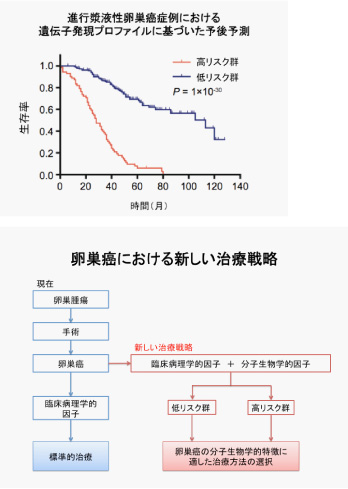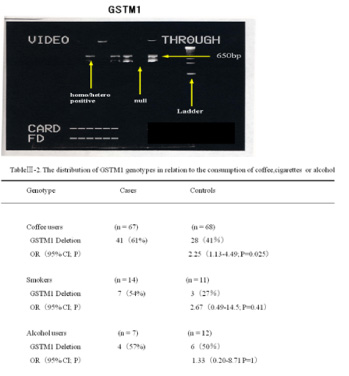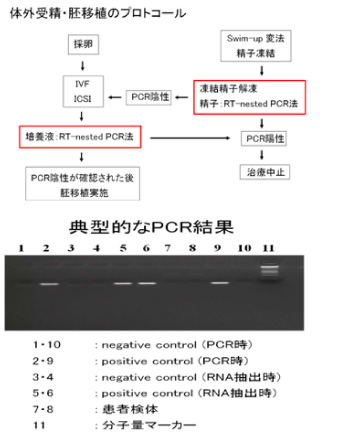1.Research Summary
The field of obstetrics and gynecology is classified into gynecological oncology, perinatology, and reproductive medicine, and highly-specialized research is conducted in each area. In addition, the field of reproductive medicine is an area related to perinatology so that research integrating the two is also carried out.
2.Research Groups
3-1.Gynecological Oncology Group
Research subjects
Research on the molecular biological mechanism of acquisition of taxane
resistance in endometrial cancer
Research on individualized treatments for ovarian cancer based on analyses
of gene expression profiles and proteomes
Research on identification of causative genes of ovarian cancer by genome-wide
exome analysis
Research on identification of causative genes of familial ovarian cancer
Research on searching for lymph node micrometastasis during sentinel lymph-node
navigation surgery in cervical cancer
Research on clarification of molecular mechanisms of the onset and progression
of endometrial cancer targeting adipocytokines
Research on identification of genes susceptible to endometriosis
Research on adjuvant chemotherapy for high-risk endometrial cancer (Echigo
Gynecological Oncology Study Group)
Current clinical research participation
Ovarian cancer
Cervical cancer
Endometrial cancer
Other
3-2.Perinatology Group
Research subjects
Research on immunological abnormalities and prevention in abnormal pregnancy
Research on prevention of fetal arrhythmias from the autoimmune perspective
Research on the systemization of fetal abnormality detection by ultrasound
tomography
3-3.Reproductive Medicine Group
Research subjects
Research on treatment of habitual abortion due to alloimmune abnormality
and repeated in vitro fertilization-embryo transfer failure
Research on gene polymorphisms of detoxification enzymes for habitual abortion
of unknown cause
Research on habitual abortion due to autoimmune abnormality and repeated
in vitro fertilization-embryo transfer failure
Research on assisted reproduction technologies for the prevention of secondary
infection in HIV-positive married couples
Research on the relationship between habitual abortion and cytokine gene
polymorphisms
4.Research Results
[Area] Gynecological Oncology Group
[Research subject]
Research on individualized treatment of ovarian cancer based on gene expression profiles
[Description]
Serous ovarian cancer is the most frequent tissue type of epithelial ovarian
cancer. Its 5-year survival rate is around 40%, and new therapeutic strategies
for improving prognosis have been awaited. In recent years, ovarian cancer,
from a molecular biological standpoint, is considered to be a heterogeneous
disease. This research focused on this molecular biological heterogeneity
to establish a prognostic system for predicting advanced serous ovarian
cancer based on gene expression profiles for improving prognosis by individualized
treatment.
An elastic net analysis with 10-fold cross validation was performed using
gene expression data from 260 patients with advanced serous ovarian cancer,
and a prognostic index composed of 126 genes was developed. Based on the
prognostic index, high and low risks were determined, and the predictive
performance of these classifications was checked with validation data (816
patients). Furthermore, changes in the immune system, particularly antigen
presentation pathways in cancer cells, were identified as being strongly
inhibited in the high risk group.
Currently, we are performing research to clinically apply genetic testing
in the high risk group, promote enhancement of the antitumor effect of
host immune cells by the reactivation of antigen presentation pathways,
and improve the prognosis of the high risk group.
(Yoshihara K & Tajima A, et al. Cancer Sci 2009; Yoshihara K, et al.
PLoS ONE 2010; Yoshihara K, et al.: Clin Cancer Res, 18:1374-85, 2012.)
[Photographs]

[Area] Reproductive Medicine Group
[Research subject]
Research on gene polymorphisms of detoxification enzymes for habitual abortion of unknown cause
[Description]
In recent years, the involvement of detoxification genetic factors has
been suggested to be a cause of habitual abortion. Toxic substances contained
in favorite foods are activated by CYP1A1 and detoxified by GSTs. Decreased
activation of detoxification enzymes during pregnancy delays the elimination
of toxic substances from the body, and abortion may occur. However, the
cause has not been fully elucidated such that this research aimed to reveal
this aspect. A questionnaire survey on favorite foods was carried out in
96 patients who had habitual abortions (at least 3 abortions early in pregnancy)
(patient group). A gene polymorphism analysis was conducted using genomic
DNA to determine the gene polymorphisms of each enzyme including CYP1A1,
GST-π, GST-μ, and GST-θ by the PCR-RFLP method. A total of 96 women who
had experienced childbirth at least twice and had no history of abortion
were included in the control group. There were no significant differences
in gene frequencies between the two groups for CYP1A1, GST-π, GST-μ, or
GST-θ. Favorite foods and gene frequencies were compared between the two
groups. The results showed GST-μ deletions in 41 of 67 patients (61%) in
the patient group and 28 (41%) of 68 patients in the control group in relation
to coffee drinking; the rate was significantly higher in the patient group
(chi-square test). The above results suggested that coffee drinking might
be associated with the onset of habitual abortion in women with deletion
of GST-μ among the detoxification factors, and this could be used for lifestyle
habit guidance for the prevention of habitual abortion.
(Nonaka T, Takakuwa K, et al.Journal of Obstetrics and Gynaecology Research,
37:1352-1358, 2011.)
[Photographs]

[Area] Reproductive Medicine Group
[Research subject]
Research on in vitro fertilization-embryo transfer in married HIV-positive men
[Description]
With the improvement of treatment drugs, HIV-infected patients can live
for a long time and may wish to get married and have children. When 100
married couples consisting of HIV-positive men and HIV-negative women attempted
to get pregnant by usual intercourse, 4.8 women/year were reported to be
infected with HIV, and secondary infection of women by artificial insemination
has also been reported. From this standpoint, it is important to establish
safe assisted reproduction technologies without the risk of secondary infection
for married couples consisting of HIV-positive men and HIV-negative women.
In our department, we have been performing in vitro fertilization-embryo
transfer using the modified swim-up technique and RT-nested PCR method
as safer assisted reproduction technologies for married couples consisting
of HIV-positive men and HIV-negative women since 2001. We have implemented
this therapy in 58 such married couples so far. The women underwent 102
cycles of ovulation induction, and pregnancy was achieved following 29
fresh embryo transfer cycles (42.0%) and 8 frozen embryo transfer cycles
(25.8%). A total of 28 married couples (48.3%), excluding women with abortions,
who underwent this therapy, delivered children. In addition, no secondary
infections were noted in any of the wives who underwent embryo transfers
or their babies born after this procedure. Based on the above, this therapy
has been determined to be effective and safe.
(Kato S, Takakuwa K, et al. AIDS, 20:967-73, 2006. Kashima K, Takakuwa
K, et al. Japanese Journal of Infectious Disease. 62: 173-176, 2009.)
[Photographs]

Please see the Obstetrics and Gynecology website for a detailed description of our research.
